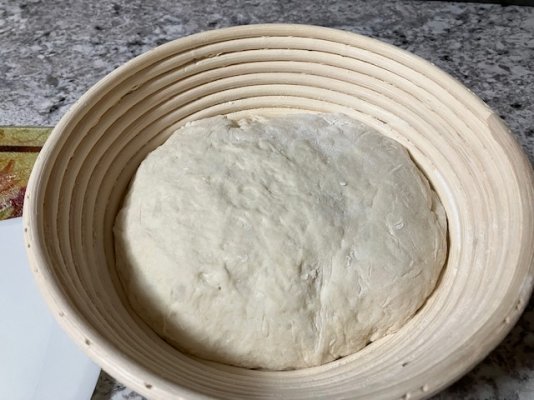Call me the contrarian .... But I respectfully disagree with most of what you're hearing right now. In general terms, I argue that a sourdough starter is far more resilient & less needy than many will tell you. Frankly, I sometimes totally neglect my starter for days on end (even a week or three)... But feed it again, and within a couple days, back to normal.
- "Natural yeasts from the air" is basically a wives' tale. By far, the single most significant source of natural yeasts are going to come from the flour that you're using to feed your starter. The yeasts join the party from the field, not your kitchen. That's why you need to use unbleached flour, whole wheat flour, or other varieties (rye on occasion is an excellent addition) that have not been stripped of those natural yeasts from the field.
- That is not to say that the yeasts in your starter will not change over time -- they will. Based on the environment that you keep it in (warm, cool, dry, moist, etc.), the yeast strains that thrive in that environment will eventually dominate your starter. That's why an older starter becomes stronger/more developed -- it gets used to how you treat it, and the strong survive.
- You're drying out your starter... if it's getting too warm (I'd be very wary of storing it in the oven), you could even be literally cooking (read: killing) your starter. That's why it's forming a crust. Refer back to the "catching wild yeasts" fallacy -- the coffee filter is not helpful. Think about yeast "digestion" -- as the yeasts consume the flour/water, they belch out 3 main by-products: carbon dioxide, water vapor, and an acidic alcohol (if in excess, becomes 'hooch'). Focus on keeping your starter properly moist. I store mine in a fully sealed mason jar to trap all of that water vapor. By contrast, the coffee filter is letting all of that moisture escape. Seal your jar properly, your starter will thank you.
- The presence of hooch is a bad thing. It means that your starter is starving, and over-producing the acid-alcohol. When the starter runs out of flour/water, it starts re-consuming its own by-products, the acid-alcohol that it originally produced. That leads it to concentrate the acid, produce excess alcohol, and you're now slowly killing it. A bit of hooch is no problem, just a sign that you're overdue feeding your starter. If you're getting a bunch of hooch every time, and especially if you're getting that after just 1-2 days after feeding, it means you're using the wrong proportions in your feeding. Feed your starter with at least 3x the weight of flour/water mix to the weight of your existing starter. Better, 4-5x. That's why I discard to a very small weight of starter (<10g), and feed it up to ~50g. If you try to keep a larger amount of starter on-hand, you end up with tons of discard. Discard down to 50g? Then you need to feed it 150-250g of flour/water, which will be a full cup of discard at the next feeding in just 2 days! Easy to get overwhelmed. So keep your starter small, you only want to keep it alive & healthy.
- Temperature ... meh. My house stays around 63-65 degrees most days, especially in the winter. My starter stays on the counter, and does just fine. It also does just fine in the summer when the kitchen is closer to 74-75. As I said above, the starter will adapt to the environment you keep it in. Consistency is far more important than exact conditions. If you can keep it consistent, then the yeasts tolerant of those conditions will take over. But if you're swinging it between 63 today, 78 overnight, 68 tomorrow ... No single strain will take over, and you'll end up with a weak starter.
Honestly, the best way to get a strong, healthy sourdough starter? Go to a bakery that does authentic sourdough, and ask them for a tiny bit of their starter. I've almost never come across bakers who are unwilling to share a bit, and a starter that's used daily like that is going to be strong, healthy, and resilient. Once you've got a good healthy starter as a base, you almost have to TRY to kill it.
I am by no means a sourdough expert, but these are lessons that I've learned over nearly a decade of working with sourdough, and also lessons I learned from a trio of brothers who run a very successful sourdough bread-baking business (it's all they do -- nothing but sourdough). But hey, just my 2 cents...

 It went very well with the chicken vegetable soup DW made.
It went very well with the chicken vegetable soup DW made.